Mice are repelled by strong, intense smells like peppermint, cloves, and ammonia. Learn about the scents that mice find offensive and how using these can aid in deterring mice from entering and residing in human habitats.
POINTS
- Mice have a keen sense of smell, which they use for survival. They can be deterred by strong, intense odors, particularly those that are unnatural to them. Examples of such scents include peppermint oil, cloves, cedarwood, onion, garlic, cayenne pepper, vinegar, and dryer sheets among others.
- Beyond natural scents, some household items like dryer sheets and certain commonly-used ingredients like vinegar can also assist in repelling mice. Using such products can help minimize the infestation.
- In addition to natural and household items, certain synthetic scents and chemicals like ammonia, mothballs, and bleach can also deter mice. However, these need to be used with caution due to their toxic nature.
- Prevention methods beyond scents include keeping the home clean, storing food appropriately, sealing potential entry points, using traps, and integrating certain plants into your garden or indoor pots that mice dislike. All these measures make the environment less conducive for mice.
- While smell-based repellents can provide a line of defense, they have their limitations. They need to be replenished frequently, mice may get used to the scents over time, and their effectiveness can decrease if mice have already nested or if there’s an abundant food source. In such cases, professional pest control services may be required.
Understanding Mice and Their Sense of Smell
How do mice use their sense of smell to survive?
Mice use their sense of smell for a wide range of survival tactics. Their keen nose helps them find food, discern danger, and track mating partners. The potency of smell for these creatures is so profound that they can distinguish their kin from unfamiliar mice with just a whiff.
Why is it important to consider natural scents to repel mice?
Considering natural scents to repel mice is a strategy that has many advantages. Firstly, it limits the use of potentially harmful chemicals in your house. Many artificial pest control products can cause serious health issues if ingested or even if their vapors are inhaled. Secondly, natural scents are safe for most household pets. They also don’t affect the natural balance of your home’s biome – there’s no killing off beneficial insects for instance.
What Are the Effective Natural Scents That Mice Despise?
Here, we have an array of natural scents that may just keep these unwanted guests out of your home. Keep in mind that not every method will be entirely foolproof. It’s a case of trial and error, and you might have to combine a few different methods to get the best results.
1. Peppermint Oil
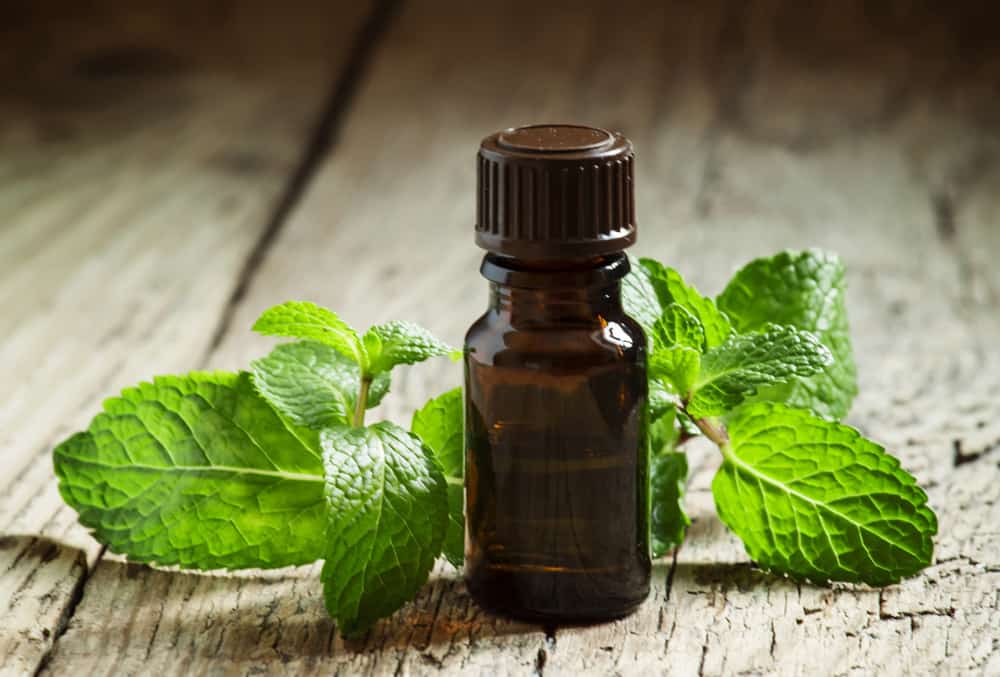
Mice have a particular aversion for minty smells. Peppermint, in particular, is infamous among the rodent community. To them, the scent is incredibly potent and unpleasant. As a result, they tend to avoid areas where the smell of peppermint oil is noticeable.
You can leverage this by soaking cotton balls in peppermint oil and strategically placing them around your house, specifically in areas where you’ve noticed mouse activity. The aromatic balls serve two purposes – they freshen the air with their strong minty smell and repel mice from the area. But remember, the scent of peppermint oil dissipates with time, so be ready to replace the balls periodically.
2. Cloves and Cloves Oil
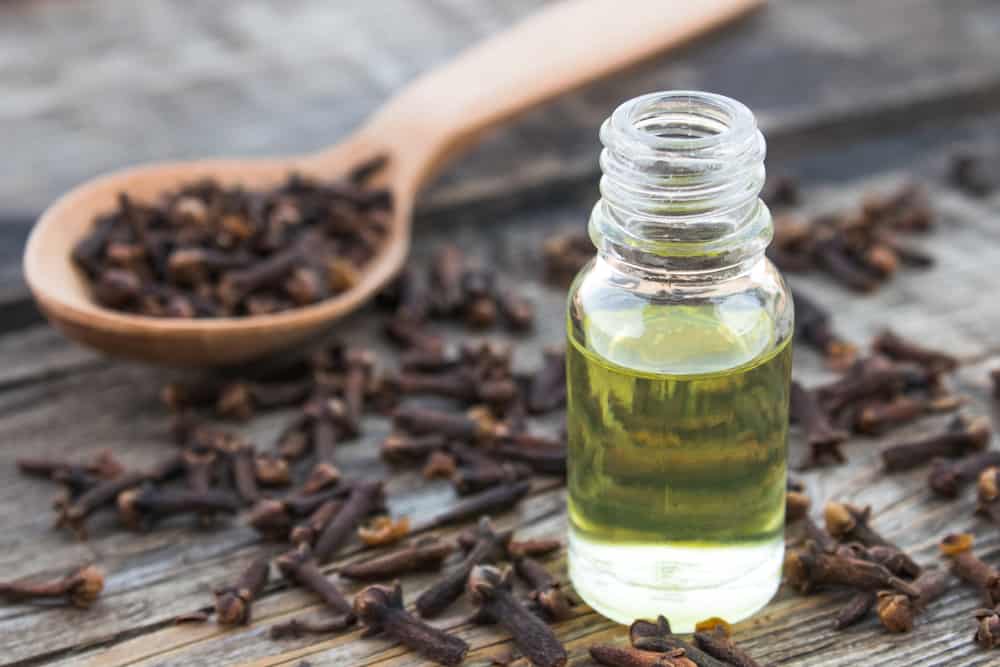
The sweet, aromatic nature of cloves provides an enjoyable flavor profile in your cookies or savory dishes but not so much for the mice. The intense scent of cloves works as a brilliant mouse deterrent.
Just like peppermint oil, place cloves or soaked cotton balls in problem areas. The strong aroma will repel the mice from nesting or searching for food around these locations. However, similar to the peppermint oil, cloves’ aroma will also fade with time, which makes replacements a needed task.
3. Cedarwood or Cedarwood Oil
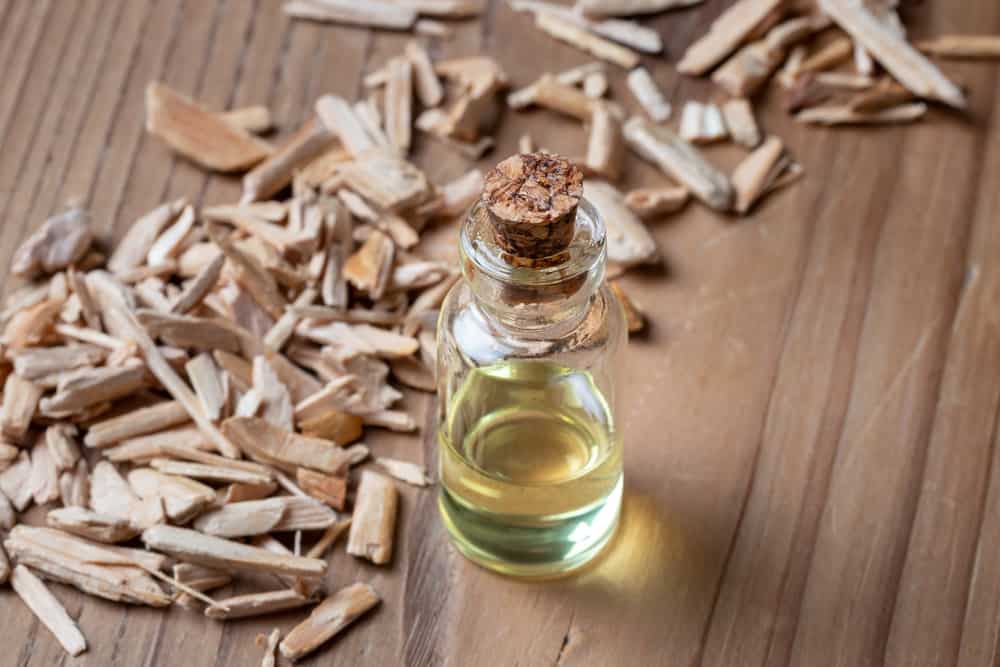
If you’ve ever opened a cedarwood box or walked near cedar trees, you’ve probably admired the fresh, clean aroma. However, that is not the case with mice. This aroma, which might be mild and pleasant for humans, has a strong, harsh scent that mice find unbearable.
As a bonus, cedarwood oil has been reported to interfere with mice’s body cycles, reducing their lifespan and reproduction capabilities. The most practical way to use this scent is by placing cedarwood blocks or chips in areas where you’ve noticed mouse activity. Alternatively, you can also use the oil form by soaking cotton balls and placing them accordingly.
4. Onion

Onions are among the most effective and readily available mice repellents. They possess a sharp smell that mice find too harsh and tend to avoid.
To use onions as a deterrent, slice them up and place the slices near potential mouse entrances or common activity areas. Remember to replace the onion slices as they lose their potency when they dry out or decompose.
5. Garlic
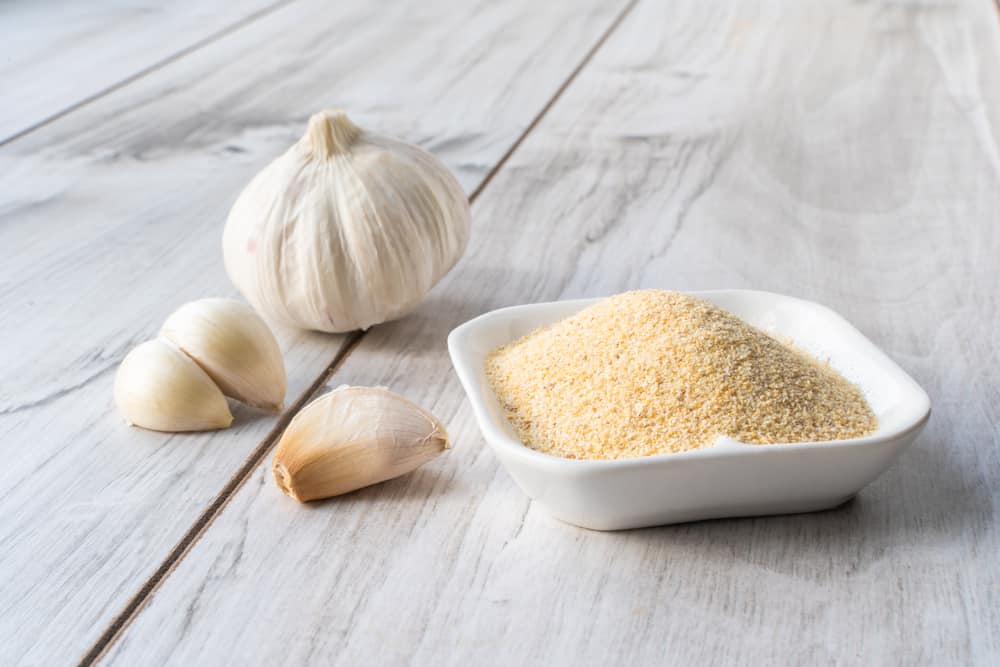
Another commonly used kitchen ingredient can double as a powerful mouse repellent – garlic. It releases an intensely pungent smell that can drive away not only mice but many other pests as well.
The method of application is quite simple. You can place garlic cloves in areas where mice are active or sprinkle garlic powder on their potential entry points. However, bear in mind that garlic bulbs dry faster; hence, they are a less preferable choice compared to garlic powder.
6. Cayenne Pepper
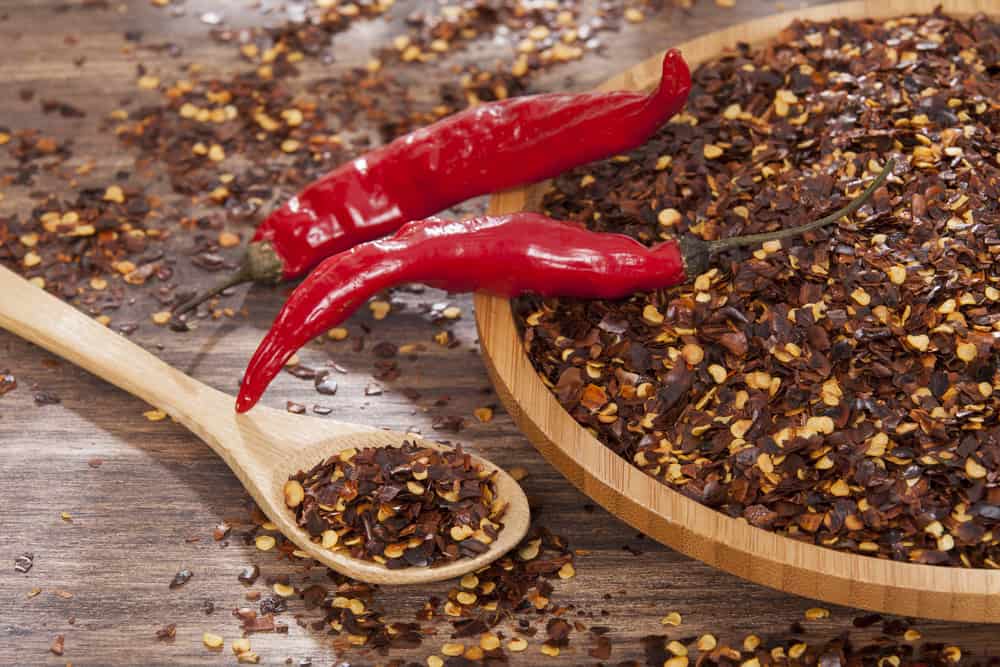
Cayenne pepper doesn’t just pack a punch in your spicy dishes, it doubles as a widely-used mouse deterrent. This particular pepper contains capsaicin, a chemical known for its pungent flavor and repellent capabilities.
To make use of cayenne pepper as a repellent, sprinkle it in areas where you’ve noticed mouse activity. However, this method should be used with caution since the pepper, particularly if used in large quantities, can be irritant to both human eyes and noses.
How Do Household Items Contribute to Repelling Mice?
While exploring natural repellents is certainly a good strategy, you might be wondering about other items around your house that could double-duty as mouse repellents. Let’s review a few of those:
7. Vinegar
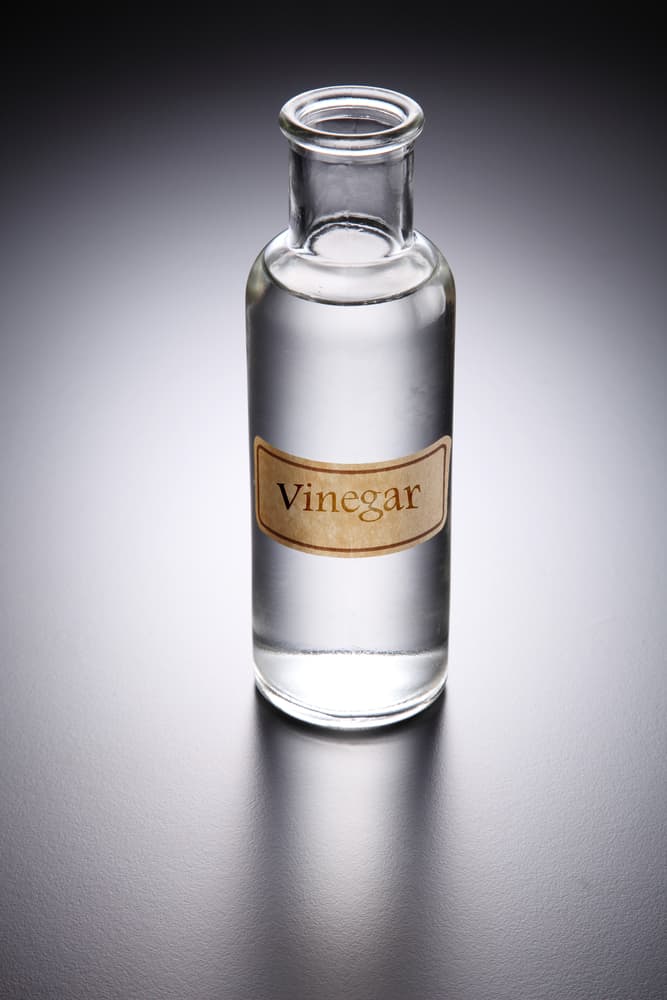
Vinegar is another household item with a sharp, robust smell that mice find unpleasant. Specifically, white vinegar can act as an effective mouse repellent.
The most practical method to utilize vinegar is by mixing it with water and using this solution to clean floors, kitchen countertops, and storage areas. Just make sure you use it in areas that are not sensitive to acidity as vinegar can potentially damage such surfaces.
8. Dryer Sheets
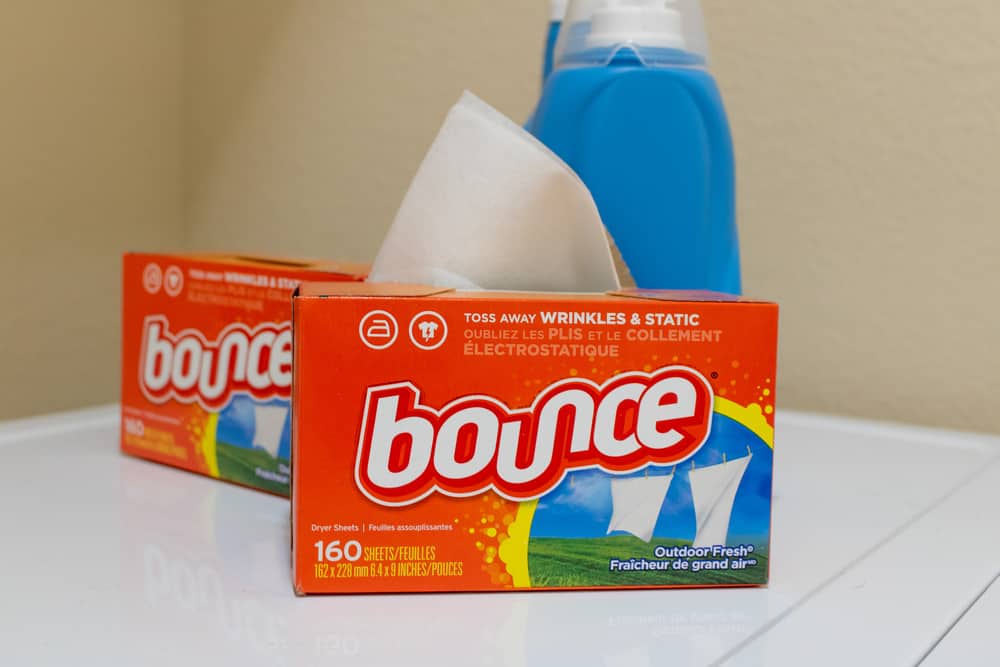
Although not naturally derived, dryer sheets are an item you likely have at home. These sheets, commonly used in the laundry, give off a scent that is appealing to humans but disturbing to mice.
Simply place a few of these sheets in problem areas for bet results. You might also consider rubbing them along baseboards and corners where mice are likely to run.
9. Mint Toothpaste
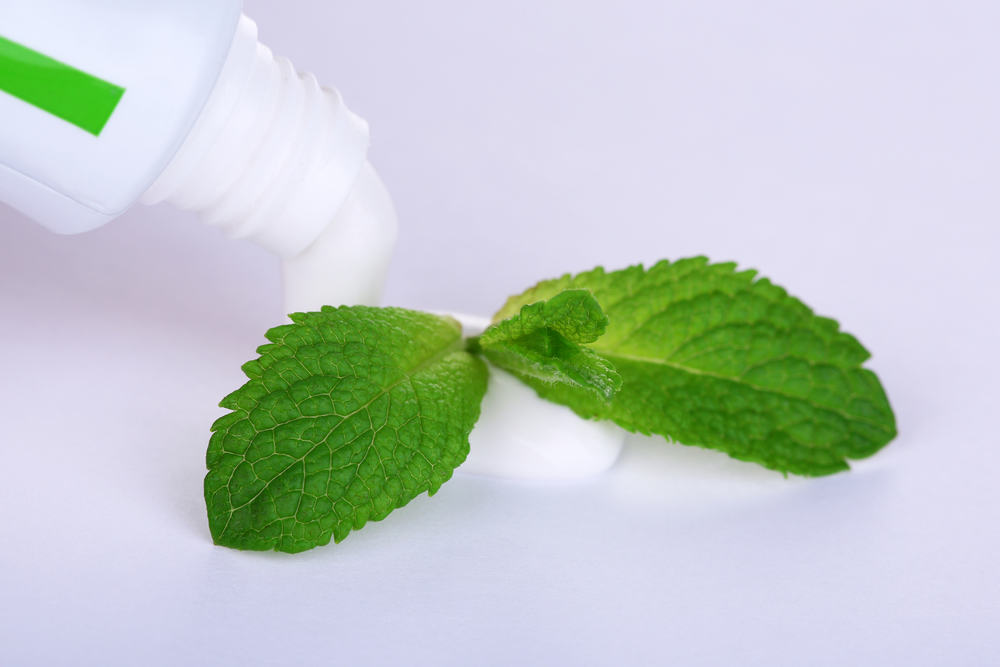
While it may sound surprising, the mint toothpaste you use to freshen your breath can double as a mice repellant. The strong, fresh, and cool mint scent that we cherish is, in fact, quite a turn-off for these small, furry intruders.
The use of mint toothpaste as a mouse deterrent is simple yet effective. Mice avoid the strong odor given off by mint toothpaste just like they would with peppermint oil. To utilize this, you can squeeze out a small amount near mouse holes, corners of the house, or any areas you suspect mouse activity. The persistent smell of mint will create an invisible barrier that wards off these tiny creatures. However, this requires regular replenishment as the toothpaste dries out and loses its scent over time. Always remember to maintain the mint’s smell to keep these pests at bay.
10. Chili Powder or Chili Oil
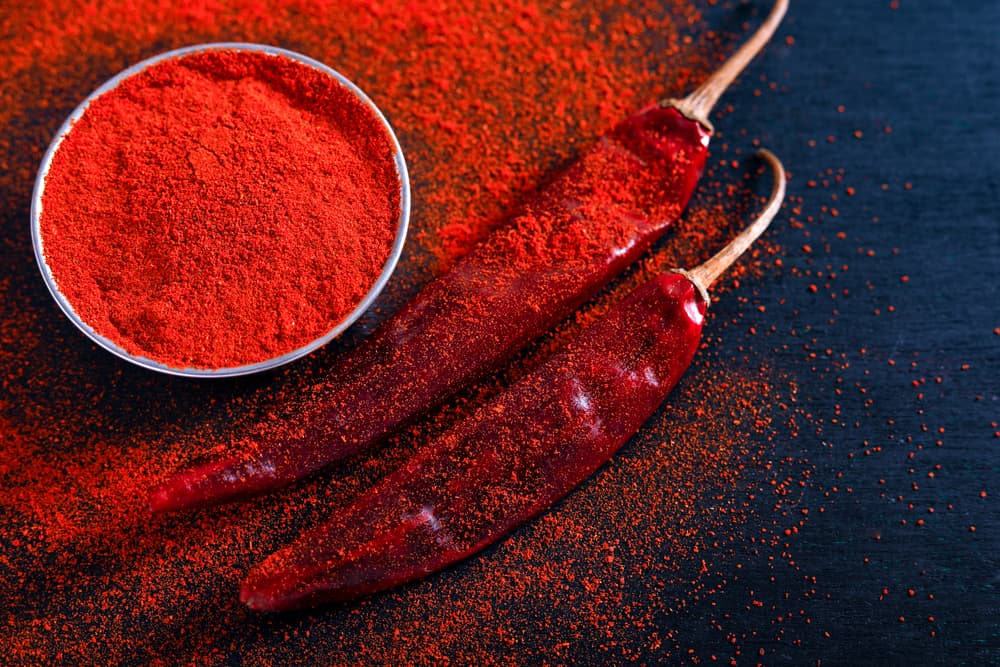
Similar to cayenne pepper, chili powder or oil can work effectively to deter mice. The strong aroma and spicy nature can cause discomfort and irritation, leading mice to avoid these areas.
To use this, you can sprinkle chili powder around areas of mouse activity or mix chili oil with some water and use it as a spray. Ensure to handle this with caution as it can irritate your skin or eyes.
11. Tea Bags
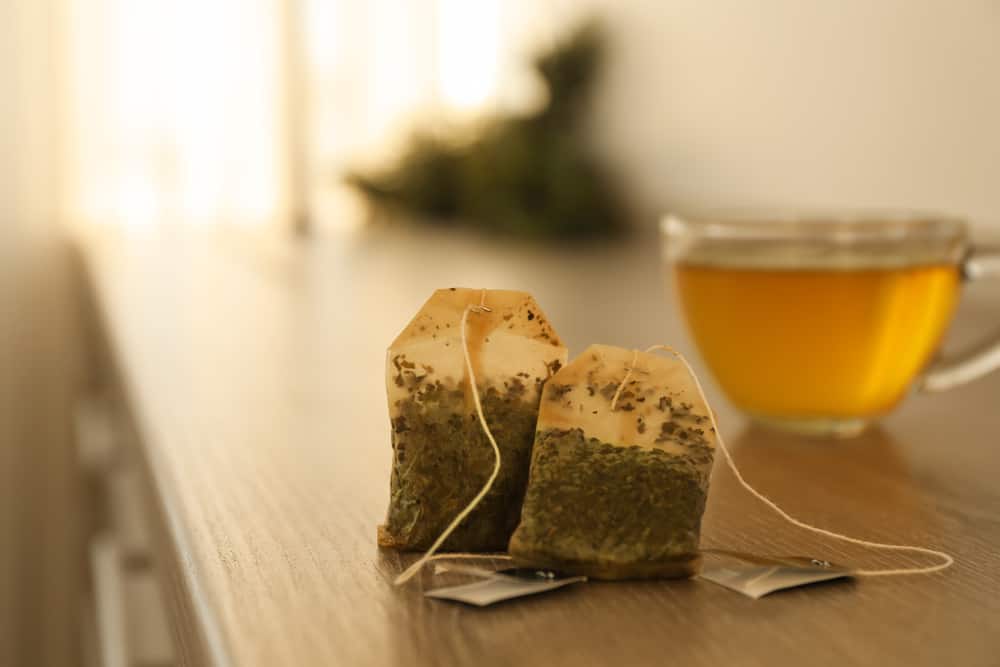
Who knew your used tea bags could be valuable in repelling mice? Most tea varieties are filled with a mix of spices and scents mice find disgusting. Instead of discarding the bags after use, let them dry and place them around the house. Alternatively, you can steep a concentrated tea, cool it, and then use it as a potent repellent spray.
The Role of Essential Oils in Rodent Repellence
Aside from their heavenly scents to us humans, essential oils play an effective role in keeping these little critters away. Let’s explore some of them:
12. Citrus Oils

Lemon, orange, grapefruit – the oils from these citrus fruits have a strong, invigorating scent that mice just cannot tolerate. Spraying these oils (diluted with water) or placing peels around active areas can help deter mice effectively.
13. Other Essential Oils

In addition to peppermint and citrus oils, other essential oils such as eucalyptus, lavender, and citronella also have a strong odor that works well to repel mice. Using a diffuser to disperse these scents around your house can make it less inviting to these pests.
Synthetic Scents and Chemicals That Mice Avoid
While natural and household items are a safer bet for homes, especially those with pets and children, certain synthetic scents and chemicals can also work to keep mice at bay.
14. Ammonia
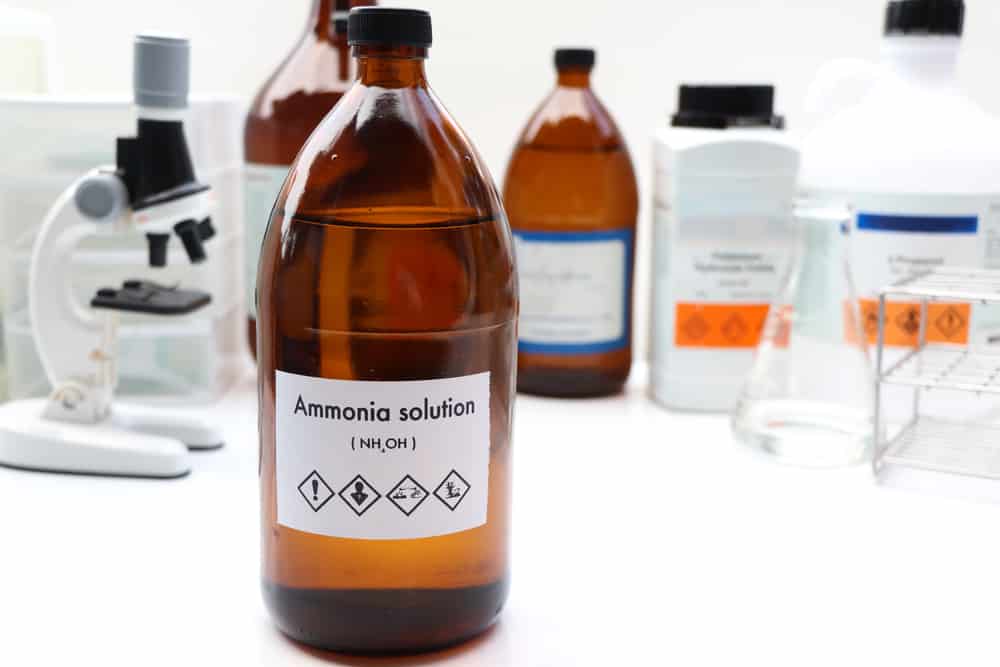
Ammonia is a compound found in cleaning products and urine of many animals. Its strong unpleasant smell can make mice steer clear from the area. The smell of ammonia is so potent that it can trick the mice into thinking that a predator’s urine is nearby, creating a perceived threat.
However, using ammonia does come with some considerations. It’s a hazardous chemical that should be handled with extreme care. It’s crucial to ensure that it is placed in areas where children and pets cannot reach, as the fumes can be harmful if inhaled.
15. Mothballs
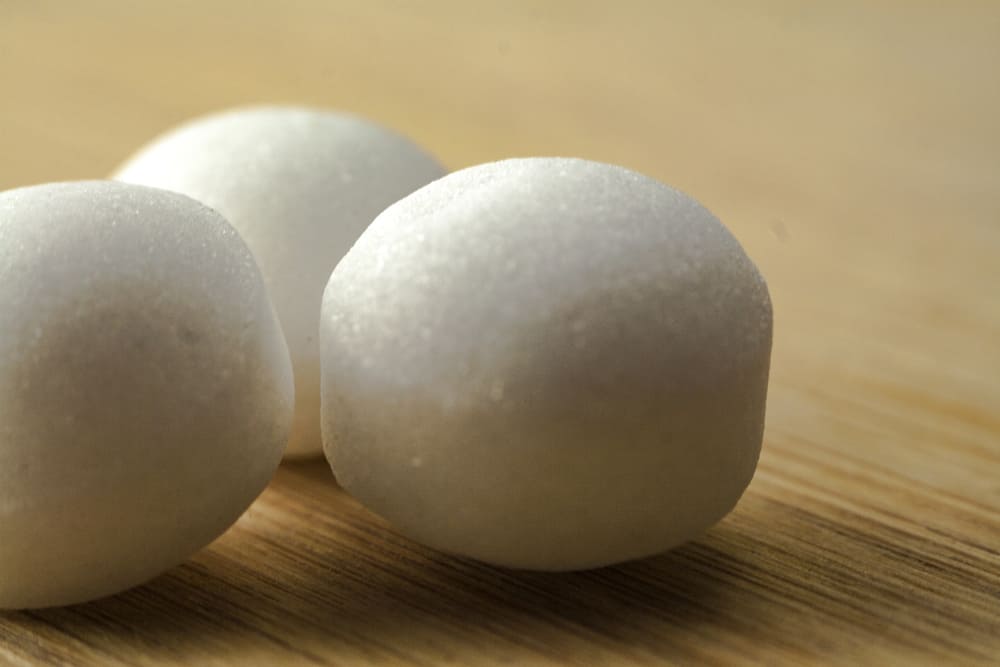
Mothballs have been used as a method for repelling mice due to their disruptive smell. The active ingredients in mothballs, naphthalene and paradichlorobenzene, which emits a strong odor that mice find highly displeasing.
However, using mothballs comes with a caveat. Mothballs are toxic and can be harmful to humans and pets if accidentally ingested or inhaled in large quantities, so they are not the best choice if you have small children or pets. Moreover, they’re not environmentally friendly due to their non-biodegradable nature.
16. Bleach

The pungent scent of bleach is another scent that mice find off-putting. Its strong smell can deter mice and keep them away from areas where it is present. However, bleach is another potent and hazardous substance that should be used with caution.
It’s best to use bleach diluted with water, and if you’re using it to clean mouse droppings or urine, allow it to soak for about 5 minutes before picking it up. Make sure to ventilate the area properly during and after the use of bleach. Never mix bleach with ammonia or acid-based cleaning products as this can create toxic fumes.
Leveraging Predator Scents to Keep Mice at Bay
How does the use of predator urine or scents intimidate mice?
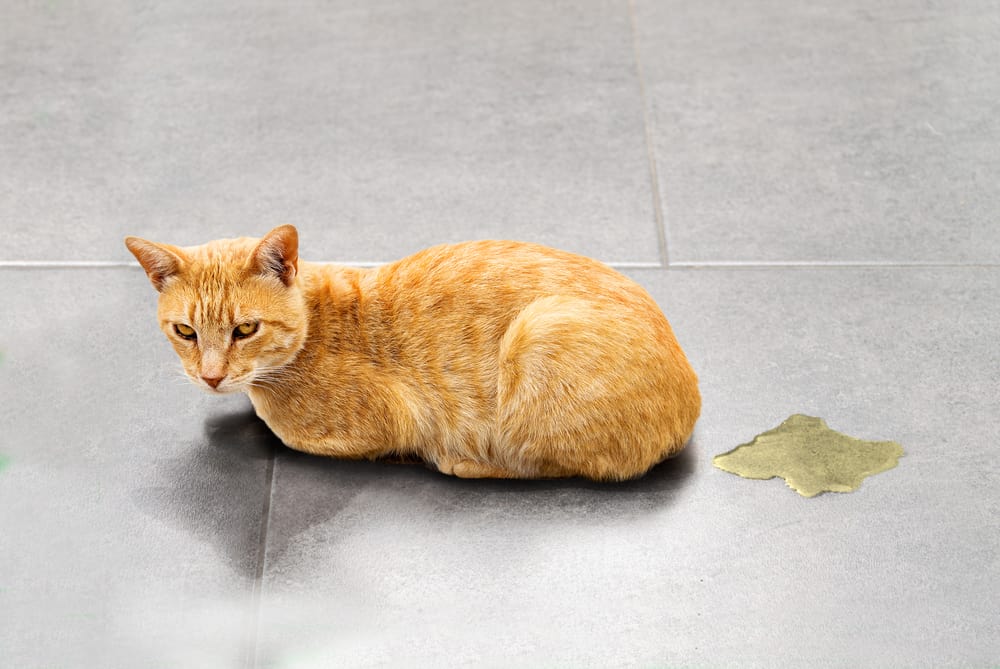
Mice have evolved with a built-in danger recognition system that triggers when they sniff out the scent of their natural predators. Certain scents such as the urine of a fox or a cat trigger a fear response in mice. They interpret this scent as a threat and stay away to avoid crossing paths with their potential predator.
How to use predator scents to deter mice?
Most garden or home improvement stores carry predator urine, which can be sprinkled around the perimeter of your property or near potential entry points into your home. It’s an effective way to create a natural barrier against these invaders. Furthermore, having pets, especially cats, can serve a similar purpose as they leave behind a natural predator scent.
That said, remember that using predator scents needs to be done regularly as the smell wears off over time, especially after rains or watering your garden.
Preventative Measures Beyond Scent: Keeping Mice Out Effectively
Apart from scents, there are numerous other efficient methods to keep mice away. They focus on making the environment less conducive for these rodents.
Besides scents, what are the best practices to keep mice away?
To keep mice away, the most effective practice is to prevent them from entering your home in the first place. Perform regular inspections of your home, looking for cracks, holes, and other potential entry points. Sealing these with steel wool or hardware cloth can prevent mice from entering your home.
Moreover, maintaining cleanliness can discourage mice from seeing your home as a food source. Store your food properly, preferably in glass or metal containers with tight lids, clean up food spills immediately, and don’t leave leftovers open. Regularly taking out the trash and avoiding leaving pet food out overnight can also work wonders.
What repels mice?
Other than the aforementioned scents and preventative measures, certain plants are believed to repel mice due to their strong odors. These include mint, amaryllis, sweet pea, lavender, and wormwood. Integrating these into your landscape or gardening can add a layer of protection to your home.
Also, electronic devices that emit high-frequency sound waves—known as ultrasonic pest repellers—claim to repel rodents, insects, and other pests.
How to keep mice away naturally?
In addition to using scents, maintaining cleanliness, and landscaping with plants that repel mice, natural mouse deterrents can include the use of traps. Regular wooden snap traps, catch-and-release traps, and even homemade traps can be effective at physically removing mice from your property without using harsh or toxic chemicals.
When to Seek Professional Help for Mouse Infestations
The solutions discussed thus far are primarily geared towards minor to moderate mouse infestations. But what if the mouse problem in your home is out of control or persistent despite your attempts to deter them?
Are smells enough to keep mice away?
While strong smells can indeed deter mice to some extent, they are not a foolproof solution. Mice are persistent critters and if they have established a nest or if your home provides an abundant food source, they are likely to brave the unpleasant odors. In such cases, more drastic measures might be required.
What limitations do these scents have in deterring mice and rats?
All the scents discussed lose their effectiveness over time and need to be replenished regularly to maintain their deterrent effect. Mice also have the ability to get used to smells over time, reducing their effectiveness.
Moreover, if the mice have already nested and bred in your house, relying only on smell deterrents won’t be very effective. Once they’re nesting, food, warmth, and safety needs will often override their dislike for certain smells.
How reliable are scent-based repellents in the long term?
While scent-based repellents can be an effective first line of defense, they are less reliable over the long term, particularly in instances where a home provides an attractive food source and ideal nesting conditions. Mice are clever creatures with adaptive abilities, and over time, they may become desensitized to the scents that initially repelled them.
As such, a multi-faceted approach is recommended for long-term control. This includes preventative measures such as securing possible entry points, maintaining cleanliness, storing food appropriately, and introducing natural predators like cats into the environment along with the use of scent-based repellents.
When should one consider contacting a professional pest control service?
If you’ve tried multiple methods and the mouse infestation continues to persist, it may be time to call in professionals. Notably, if you’re noticing mice during the day, finding droppings in multiple areas, or hearing frequent scampering noises, these may be signs of a large infestation which requires professional help.
Pest control professionals have extensive training and access to specialized tools and techniques that can handle substantial infestations more effectively and efficiently. Additionally, they can provide guidance on strategies to prevent future infestations.
FAQs
1. What smell keeps mice away the most effectively?
While many smells can repel mice, peppermint oil is often cited as the most effective and is frequently used in commercial rodent repellents. However, effectiveness can vary depending on the situation and other factors, such as the availability of food or how established a mouse population is in a home.
2. Are these natural repellents safe for use around children and pets?
Most natural repellents like peppermint oil, cloves, and peppermint are safe to use around children and pets. However, care must be taken to ensure that they’re used in a way that doesn’t pose a risk of ingestion. For instance, don’t leave soaked cotton balls within reach of children or pets. Some strong smells, especially essential oils, can also be irritating to pets, particularly those with respiratory issues.
3. How often should natural repellents be replaced or refreshed?
As a general rule, natural repellents should be replaced or refreshed as soon as their smell begins to fade. This will vary depending on the substance used, but on average, you should expect to replace them every few days for maximum effectiveness.



